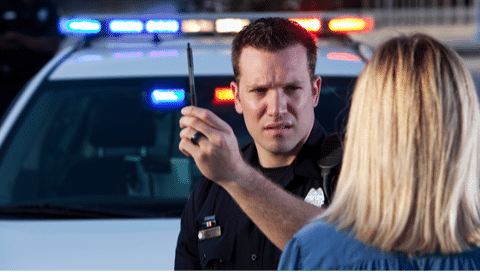When a law enforcement officer suspects a driver of being under the influence of alcohol or drugs, one of the standard procedures they employ is conducting field sobriety tests. These tests are designed to assess a driver’s physical and cognitive abilities, helping officers determine if they are impaired.
However, the accuracy of field sobriety tests has long been a subject of debate. In this blog post, we will delve into field sobriety tests, their reliability, and how you can challenge the results when necessary.
What Are Field Sobriety Tests?
Field sobriety tests are a set of standardized assessments that police officers use during traffic stops to determine whether a driver is impaired by alcohol or drugs. These tests typically include three main assessments:
- Horizontal Gaze Nystagmus (HGN) Test
The HGN test involves observing the driver’s eyes as they follow an object, such as a penlight or finger, moving horizontally. The officer looks for signs of involuntary eye movement, which can indicate impairment.
- Walk-and-Turn Test
In the walk-and-turn test, the driver is asked to take nine heel-to-toe steps along a straight line and then turn around and take nine more steps in the opposite direction. Officers evaluate the driver’s ability to follow instructions, maintain balance, and walk in a straight line.
- One-Leg Stand Test
During the one-leg stand test, the driver is instructed to raise one leg and hold it for a specified period, usually 30 seconds. The officer assesses the driver’s ability to balance and follow instructions.
The Issue of Accuracy
While field sobriety tests are widely used in Driving under the influence (DUI) cases, their accuracy has been a topic of concern. Several factors can affect the results of these tests, including:
- Environmental Conditions
The location where the tests are administered may not always be ideal. Factors like uneven terrain, poor lighting, or adverse weather conditions can impact a driver’s performance.
- Nervousness and Anxiety
Being pulled over by the police can be a nerve-wracking experience for anyone. Nervousness and anxiety can lead to false positives during field sobriety tests.
- Health and Physical Conditions
Certain medical conditions, injuries, or disabilities can affect a driver’s ability to perform these tests accurately. This means that even a sober individual may fail due to physical limitations.
- Officer Subjectivity
Field sobriety tests require officers to make subjective judgments about a driver’s performance. This subjectivity can introduce bias into the results.
Challenging the Results
If you have been subjected to field sobriety tests and believe the results were inaccurate, you have the right to challenge them. Here are some steps to consider:
- Consult with an Attorney
Immediately seek legal counsel from an experienced attorney, such as the Law Offices of Ryan M. Streich. Our attorneys can guide you through the legal process and help build a strong defense.
- Gather Evidence
Your attorney will work with you to gather evidence that can challenge the accuracy of the field sobriety tests. This may include witness statements, medical records, or expert testimonies.
- Question Test Procedures
Your attorney can also question the procedures followed during the field sobriety tests. Were they administered correctly? Did the officer receive proper training in conducting these tests?
- Highlight External Factors
If environmental conditions, anxiety, or physical conditions could have affected your performance, your attorney can highlight these factors to create doubt about the test results.
- Challenge the Officer’s Subjectivity
Your attorney can argue that the officer’s subjective assessment may not accurately reflect your level of impairment.
The Importance of Legal Representation
Challenging field sobriety test results can be complex, and having legal representation is crucial. The Law Offices of Ryan M. Streich specializes in DUI defense and has a proven track record of helping clients navigate the legal system. By choosing an experienced attorney, you can increase your chances of successfully challenging field sobriety test results and achieving a favorable outcome in your case.
If you believe you have been unfairly subjected to inaccurate field sobriety tests, call us at (940) 613-0115 or fill out our contact form to receive expert legal guidance.
Sources
http://www.fieldsobrietytests.org/accuracyoffieldsobrietytests.html
https://www.baritzlaw.com/blog/2021/05/just-how-accurate-is-a-field-sobriety-test/
https://www.findlaw.com/legalblogs/criminal-defense/3-ways-to-challenge-field-sobriety-tests/

